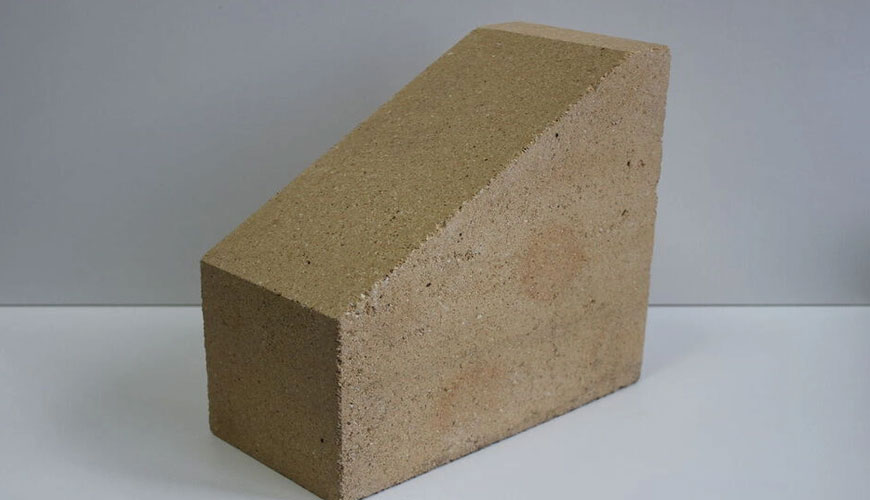

EUROLAB, with its state-of-the-art accredited laboratories and expert team, provides precise and fast testing services within the scope of EN 993-19 testing. This European Standard describes a method for determining the thermal expansion of densely shaped refractory products under increasing temperature by a differential method.

A cylindrical test piece is subjected to a defined compressive contact load and heated in air at a given uniform temperature rise. The change in altitude and temperature is recorded, and the percent change in altitude is evaluated as a function of temperature.
The test method involves simultaneously heating a refractory sample and a reference material (usually a high purity alumina) in a furnace and measuring the differential expansion between the two materials as the temperature increases. The coefficient of thermal expansion is calculated by dividing the differential expansion by the original length of the sample.
The test is typically performed on small cylindrical or rectangular specimens ranging in size from 20-50 mm. Samples are often machined to an exact size and shape to ensure that thermal expansion is measured accurately.
The coefficient of thermal expansion is an important property for refractory materials as it can affect the material's dimensional stability and resistance to thermal shock. A high coefficient of thermal expansion can cause dimensional instability and cracking, while a low coefficient of thermal expansion can lead to thermal stress and failure.
In the refractory industry, thermal expansion measurements are often used to ensure the consistent quality of products as well as to verify compliance with industry standards and specifications. For example, specific thermal expansion ranges may be required for refractory materials used in certain applications, such as furnace linings or glass industry applications.
Overall, EN 993-19 provides a reliable and widely accepted method for determining the thermal expansion of densely shaped refractory products, an important feature for many applications in industry.
EUROLAB assists manufacturers with EN 993-19 test compliance. Our test experts, with their professional working mission and principles, provide you, our manufacturers and suppliers, the best service and controlled testing process in our laboratories. Thanks to these services, businesses receive more effective, high-performance and quality testing services and provide safe, fast and uninterrupted service to their customers.
To get an appointment, to get more detailed information or to request an evaluation, you can ask us to fill in our form and reach you.